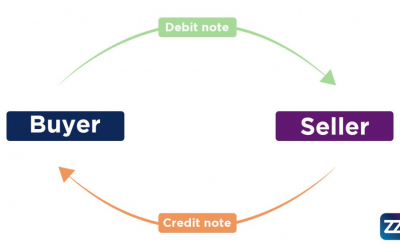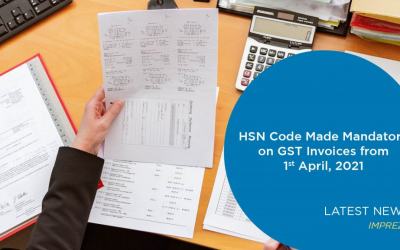
As a small business owner, you must master the art of accounting at some level. Small business accounting is all about the process, system, and people (your team members). It is done by recording expenses, profits, and financial information of each business transaction. These tasks are essential to track and manage money effectively, crucial during the early stages of development.
In addition to keeping you up-to-date with your company’s performance in the past and present, small business accounting also helps create invoices and complete payrolls. One of the most common reasons why small businesses fail is the lack of money management. However, having an accounting strategy helps to review your company’s financial goals. Irrespective of your business type, the survival solely depends on clearly defined financial plans.
The best way to counter small business financial problems is to implement efficient accounting program policies and sound financial strategies. Implementing an ideal accounting system can eventually boost the financial health of a business. This article is a part of our comprehensive guide – ideas for small businesses to set up in India. Read further to understand the know-how of business accounting basics.
What is Small Business Accounting?
Accounting is a higher-end process that examines the progress of the business. It gives meaning to the accounts data that the accountant collects through generating financial statements. Likewise, small business accounting helps track money coming in and going out of your business accounts. It includes sales, purchases, payments, and obligations.
Accounting helps you measure the health and value of a business, to make better decisions about short- and long-term success. As a small business owner, you need to know what accounting method best suits your organizational goals to succeed and sustain in the long run.
How to do Accounting for Small Business? – Accounting Basics
Accounting is the financial language of business. It enables business owners to analyze the utility of resources and funds within the business. The function of accounting is to record finances, interpret numbers, and determine the financial standing and prepare tax-related financial materials. If you are wondering how to do accounting for your small business, you have come to the right place. Here are ten golden rules to do it right.
1. Create a Separate Bank Account for Your Small Business
Legally registered small business requires a place to stash the incurred income. Opening a separate bank account helps maintain distinct records that further simplifies the tax procedures. Business registered under LLC (Limited Liability Company) and partnership are mandated to have a separate bank account as per the legal rules. Sole proprietors and other businesses may not have a determined bank account; however, it is recommended.
Start by checking with individual banks to determine what type of account is best for your business type. Creating a savings account helps save a certain percentage on each payment as a deducted tax amount. This way, you can organize money and plan for taxes accordingly. Once you have successfully created a separate bank account, you must use a dedicated credit card to build business credit that bifurcates personal and business assets.
Consider doing your homework before you approach any bank for opening an account. You need to compare the fee structures offered by a bank. Most corporate banks have higher fee structures compared to personal banks. You need to know what you owe to the bank you choose for your small business.
2. Track Your Income and Expenses
Learning how to track your income and expenses effectively is the key to establish a robust small business accounting system. It is a critical step in doing your accounts right by monitoring growth, generating financial statements, tracking deductible expenses, preparing tax returns, and supporting the generated tax reports. Create a system that organizes your receipts and other significant records since the inception of your accounting system.
Note that you should only record income and expenses that are directly related to work. Your records should also reflect any income or expense used partly for personal life and partly for business under mixed-use. For instance, you need to record invoices, canceled checks, purchase orders, and other related business documents.
3. Select Accounting Methods and Establish an Accounting System
Before moving on to creating an accounting system, it is crucial to understand what accounting is and what type of accounting method you should use. Accounting is the daily process of recording, classifying transactions, and reconciling bank statements. As a small business owner, you need to know what account method best suits your business agendas and then establish your accounting system.
Here are two different methods of accounting; the cash method and the accrual method. The cash method is followed by businesses that record transactions at the time they receive the payments. Wherein the accrual method is implemented by businesses that require to track receivables and payables as they record transactions as and when it occurs (even if the payment isn’t processed).
4. Develop a Payroll System
As a small business owner, you might hire part-time employees or freelancers to work for you to save costs. However, you need to determine if these individuals are employees or independent contractors. For these employees, you need to develop a payroll system to ensure if taxes are withheld accurately. You need to record your employees’ details and track how much you pay each individual.
5. Understand the Know-How of Import Tax
Your business model determines your plans to purchase or import products from other countries to sell in your store. You will be subjected to taxes and additional fees while importing any product. It would help if you mentioned these charges and tariffs applicable to incoming goods in your tax returns. To know the rules early on, lean about importing products to India and taxes associated with them.
Several tax rate calculators might help you in tax calculation and effective cost planning. Imprezz is one of the recommended tax calculators for small businesses in India. The GST accounting software automatically calculates applicable taxes and generate timely tax returns with a single click of a button. You need not pay extra fees for updates, and this way, you can also save costs and stay GST compliant.
6. Determine the Payment Methods
When you start issuing sales invoices, you will need a way to accept payments. Choosing an ideal payment gateway has always been a struggle for small business owners. There are several options available for local businesses, including PayPal India, MobiKwik, RazorPay, etc. These payment gateways save the hassles of setting up a third-party payment gateway.
7. Develop the Sales Tax Procedures
The e-commerce industry has drastically altered sales tax regulations to an extent where it is a bit confusing due to website issues. Every time a customer walks into a physical retail store, they pay the sales tax applicable as per the state or province where they make their purchases, regardless of whether they are a national resident or a visitor from around the world.
However, small businesses that sell online often sell to customers from different states or even countries. For small business owners in India, international purchases are also eligible for tax deductions. Owners must consult their accountants for detailed information on specific regulations regarding national and international sales tax. Thus, small businesses must launch effective sales tax procedures.
8. Establish Tax Obligations
Tax obligations may vary according to the legal structure of your business. If you are self-employed (sole proprietor, limited liability company, partnership), you need to report business income on your tax return. On the other hand, companies are separate tax entities and are taxed independently of the owners. As an employee, your income from the company is taxed.
9. Know Your Gross Margins
Optimizing your store’s gross margin is a primary step to getting more income. To calculate gross margin, you need to know the exact costs incurred in producing your product. To better understand these calculations, you need to be well aware of both COGS (Cost of Goods Sold) and the gross margin
Cost of Goods Sold (COGS) – It is the direct cost that a business incurs while producing the products that are being sold. Direct costs usually include both material costs and labor costs.
Gross margin – It is the number that represents total sales revenue remaining after a business has incurred all the direct costs of producing products or services.
Here’s how the gross margin is calculated:
Gross Margin (%) = Income – Cost of Goods Sold / Income
The difference between the amount of product sold and how much money a business takes home at the end of the day determines its ability to keep the doors open.
10. Re-Evaluate Your Accounting Methods Frequently
Small business owners prefer doing it all by themselves, don’t you? When starting for the first time, you choose to use a simple spreadsheet to manage your accounts. However, as your business grows, you might want to consider more advanced methods like Imprezz online accounting software.
As you grow, it is always ideal for re-evaluating how much time you spend maintaining your accounting records and how much time is costing your business. The right accounting solution means you can spend more time improving business without having accounting on your schedule, potentially saving the business money.
Small Business Accounting Checklist – How to Maintain Records Effectively?
Business accounting basics can be drawn down to a handful of effective practices. Although most business owners think that these accounting tasks are daunting, it’s just a myth. Here’s a sketch of an accounting checklist that can help you stay up-to-date and analyze your business’ position.
Daily Accounting Tasks
- Start every day by checking your business’ cash position.
Weekly Accounting Tasks
- Record each transaction, at least weekly.
- Record each financial activity in documents and keep copies of receipt files.
- Create records, keep track of bills, and review unpaid bills.
- Create and send invoices on time.
- Track accounts payable, pay your vendors on time and sign checks.
- Create financial statements to review the cash flow projections.
Monthly Accounting Tasks
- Make sure you balance your checkbook.
- Review the accounts receivables that are due to the past.
- Check and analyze inventory status.
- Payroll processing.
- Review your profits and losses against the actual budget.
- Monthly, review your balance sheet against the prior period.
Quarterly Accounting Tasks
- File and pay estimated quarterly taxes on time to rid of the fines.
- Review and analyze your quarterly payroll reports.
- Review and make payments on sales tax.
- Record annual profits and estimates of losses.
Annual Accounting Tasks
- Review accounts receivables that are due to the past.
- Review the status of your inventory.
- Fill out GST tax forms.
- Review and approve annual financial reports and tax returns.
Does Your Small Business Require an Accountant?
In most cases, small business owners find it more comfortable to hire an accountant or freelancer to handle accounting tasks effectively. Some small businesses also prefer hiring temporary accountants or trained part-time accounting clerks. However, in each of these cases, business owners transfer their financial responsibilities to another person. Outsourcing financial tasks can be an attractive option for business owners who lack accounting skills or hate manipulating numbers in the records.
Most business owners outsource financial duties to avail of an accounting expert in taxation and other legal obligations. Hiring a qualified accountant can help businesses manage financial details such as business plans, payroll, financial safety, monitoring financial growth, cost-saving operations, and GST tax audit. Their advice help creates a better business structure that provides flexibility to the business firm.
Hiring an Accounting Software
Small business owners that are familiar with technological advancements and accounting principles are likely to use accounting software. Because time is money in today’s fast-paced world, digital accounting is a boon. It saves a lot of time compared to manual accounting practices. Modern accounting software automatically processes numbers, data entry, performance tracking, creating reports, and so on. Once data is entered into the software, an accurate outcome is guaranteed. Further, it simples tax filing and payments.
Most software versions provide integration where several features are compiled under a single database software. It provides various functionalities, including tally, purchase orders, data trends, accounts receivables, invoices, tax requirements, quotations, and more. The ability to store extensive data under a single-platform builds room for the overall business’s efficiency, providing easy access to payment history with a click of a button. Hiring an accounting software is a much feasible option over accountants.
Conclusion
Small business accounting is essential to build a more substantial financial base since its inception. As a small business owner, it’s necessary to realize that implementing the best practices applies to you. Adhering to basic accounting principles is essential for the success of a business irrespective of its volume. Smart record keeping and financial analysis are imperative to monitor your expenses and discover new avenues for growth. Besides, it further ensures that you remain GST compliant.
Modern business owners usually opt for business accounting software even when their firm has a dedicated accountant to handle their finances. However, for small businesses that operate with little or no inventory and have only a few employees, simple accounting software can be of great help. These essential solutions are affordable and easy to implement. To rid the risk of spending extra money on tax audits and inaccurate reporting, you can choose Imprezz, a pioneer of accounting software in India.
We offer small business accounting software free trial for 14 days to determine features that best suit your organizational goals. Try the free trial today.


